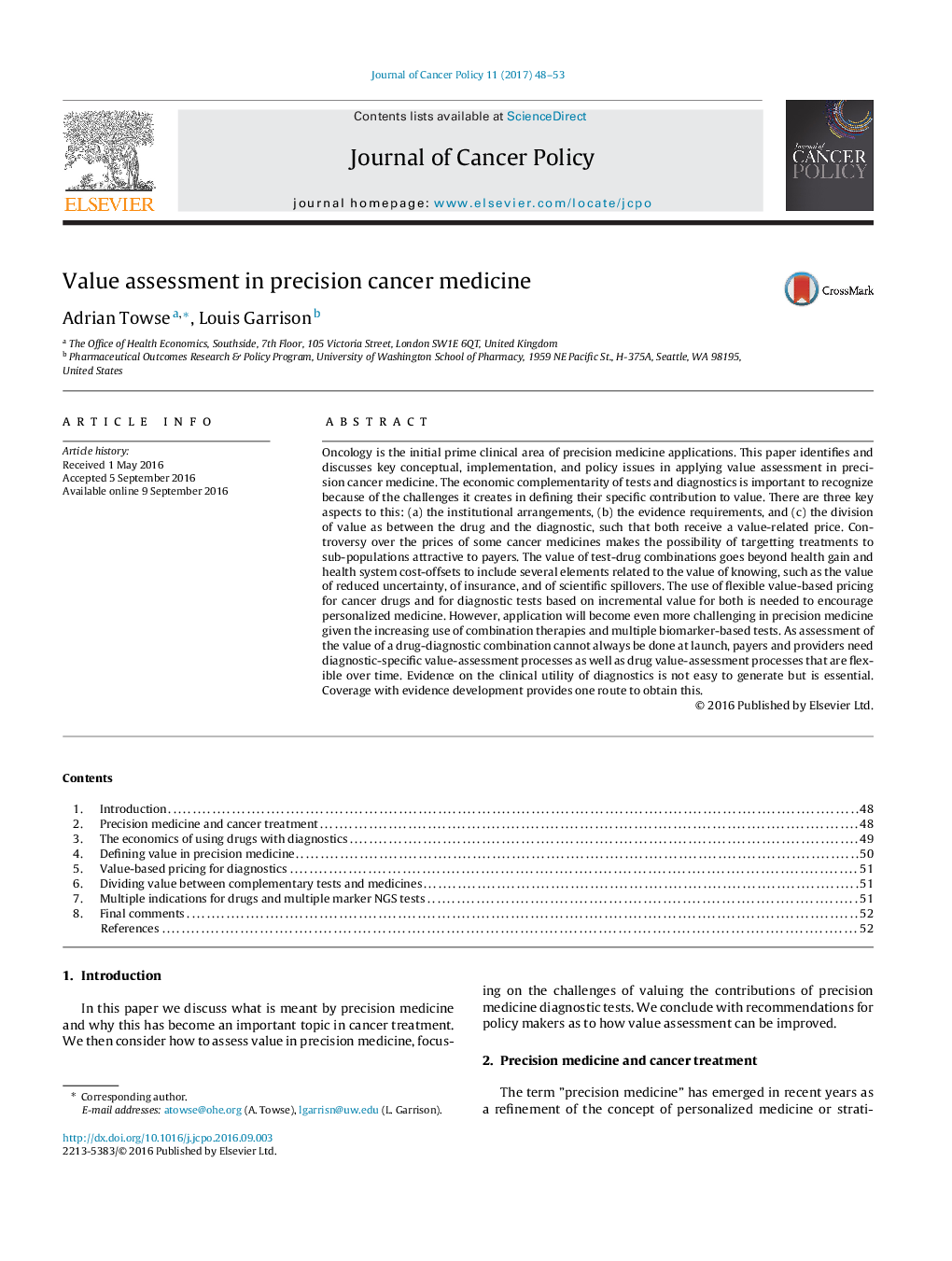| Article ID | Journal | Published Year | Pages | File Type |
|---|---|---|---|---|
| 5701400 | Journal of Cancer Policy | 2017 | 6 Pages |
â¢Oncology is the initial prime clinical area of precision medicine applications.â¢The complementary of tests and diagnostics creates special challenges in terms of assigning the value contribution of each.â¢The value of test-drug combinations goes beyond health gain and health system cost-offets to include several elements related to the value of knowing, such as the value of reduced uncertainty.â¢The use of flexible value-based pricing for cancer drugs and for diagnostic tests based on incremental value for both is needed to encourge precision medicine.â¢Evidence on the clinical utility of diagnostics is not easy to generate but is essential.
Oncology is the initial prime clinical area of precision medicine applications. This paper identifies and discusses key conceptual, implementation, and policy issues in applying value assessment in precision cancer medicine. The economic complementarity of tests and diagnostics is important to recognize because of the challenges it creates in defining their specific contribution to value. There are three key aspects to this: (a) the institutional arrangements, (b) the evidence requirements, and (c) the division of value as between the drug and the diagnostic, such that both receive a value-related price. Controversy over the prices of some cancer medicines makes the possibility of targetting treatments to sub-populations attractive to payers. The value of test-drug combinations goes beyond health gain and health system cost-offsets to include several elements related to the value of knowing, such as the value of reduced uncertainty, of insurance, and of scientific spillovers. The use of flexible value-based pricing for cancer drugs and for diagnostic tests based on incremental value for both is needed to encourage personalized medicine. However, application will become even more challenging in precision medicine given the increasing use of combination therapies and multiple biomarker-based tests. As assessment of the value of a drug-diagnostic combination cannot always be done at launch, payers and providers need diagnostic-specific value-assessment processes as well as drug value-assessment processes that are flexible over time. Evidence on the clinical utility of diagnostics is not easy to generate but is essential. Coverage with evidence development provides one route to obtain this.
